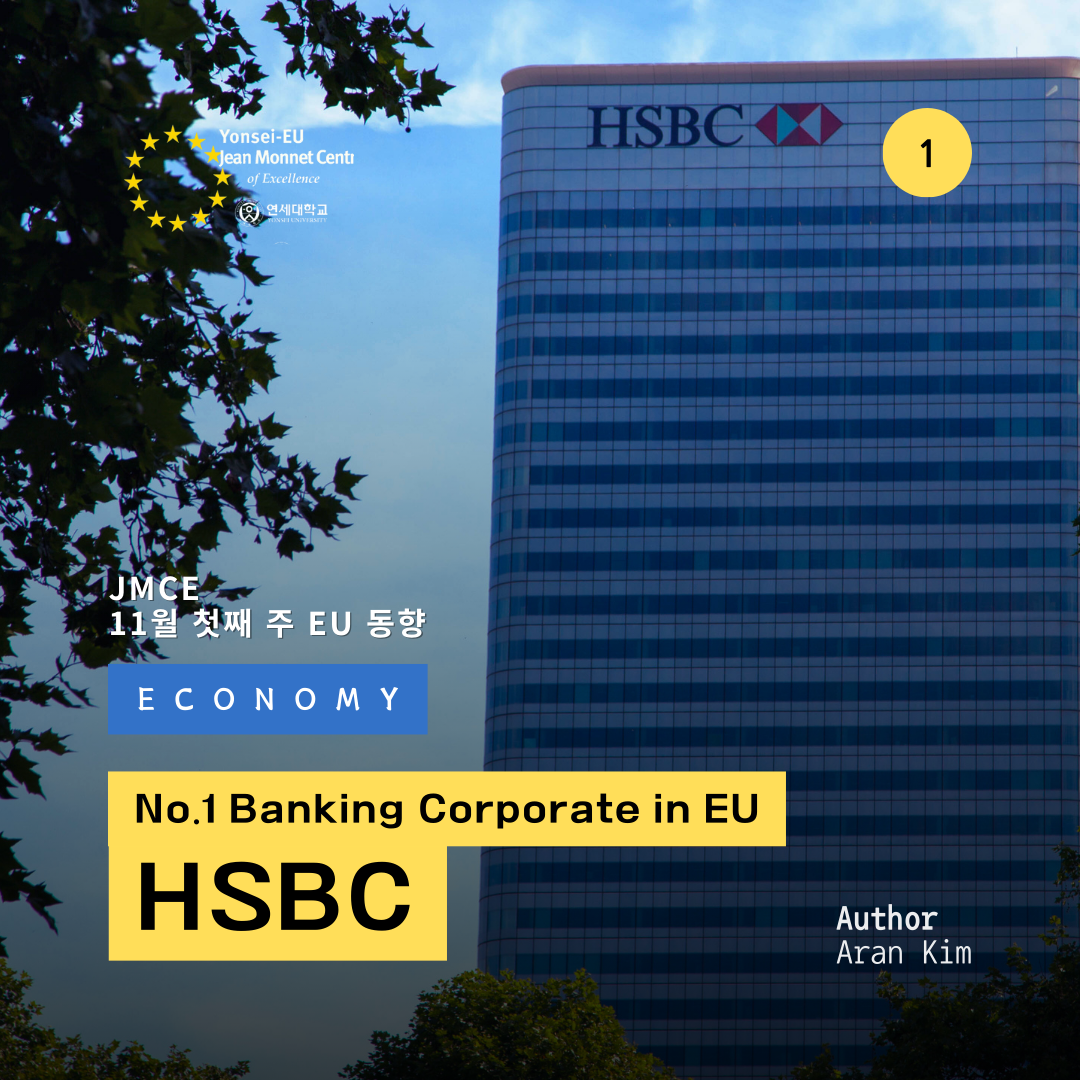YONSEI-EU Jean Monnet Centre
EU와 ASIA를 연결하는 네트워크 허브
EU 동향
EU 관련 최신 현안 이슈 및 동향을 분석하고 시사점을 제시합니다.
Europe’s biggest bank is Chinese? - skewing on HSBC and its roles
Which bank has the largest capital in Europe today? Deutsche Bank? Citibank? Goldman Sachs? No, it's not. It's HSBC (Hongkong and Shanghai Banking Corporation). With a name that suggests strong ties to China, this journal will focus on HSBC to understand the role this bank plays in the European market as well as the impact of Chinese capital in Europe.
[HSBC as a bank]
The Hong Kong Shanghai Banking Corporation (HSBC) is a long-established bank founded in Hong Kong in 1865 and is the second largest bank in the world. Despite its name, it is a “British” company and is headquartered in London, as Hong Kong was a British colony when it was founded. The founder was Scottish too. By 2021, HSBC had $10.8 trillion in assets under custody and $4.9 trillion in assets under administration (AUA) [1]. On top of that, HSBC is the largest bank in EU by total assets, totaling $3 trillion as of Dec 2023.[2]
[HSBC and Chinese Capital]
Due to HSBC’s foundation history, it sees both Hong Kong and UK as its home markets and has a dual primary listing on both countries Stock Exchange, positioning itself as a key player in facilitating capital flow between two regions. HSBC’s largest shareholder is Ping An Insurance(中國平安), 5th largest company in China, holding over 8% of HSBC’s total shares.[3] Additionally, HSBC makes the most sales in Asia region, accounting for up to 55% of the whole sales(2022), [4] suggesting that Chinese capital’s influence must have strong influence over HSBC’s governance and strategic policies.
[HSBC in EU landscape]
While HSBC’s primary market is Asia, its second-largest market is Europe, generating around 33% of its sales as of 2022[4]. HSBC’s presence in Europe is not only limited to traditional finance hubs but also extends into Central and Eastern Europe(CEE), having 19 branches across the region.[5] With this strategy, HSBC can tap into both established and emerging markets.
Business operation wise, one of HSBC’s main services in EU markets is USD clearing services, which is essential for European businesses involved in global transactions. From this perspective, we can skew our focus toward how HSBC leverages its key role as a bridge between regions, countries and continents, utilizing its massive network of more than 200,000 employees.[6]
Interestingly, HSBC is well noted for its strong ESG commitments. HSBC focuses on sustainable finance in Europe, closely aligning with EU climate goals and assisting European clients in transitioning to low-carbon operations. The bank has set ambitious targets for sustainable financing, committing between $750 billion ~ $1 trillion in sustainable investments by 2030.[7]
Through our exploration of HSBC’s role in Europe, it’s clear that the bank acts as a critical bridge between East and West. Despite its British headquarters, HSBC’s significant ties to Chinese capital—coupled by Ping An Insurance’s 8% stake and the bank’s revenue concentration in Asia—raises interesting questions about the perception of HSBC in the European market and beyond.
Notably, Brand Finance’s Declan Ahern commented on the dominance and growth potential of Chinese banks, particularly recognizing HSBC's status as one of the world’s most valuable banks.[8] This observation suggests that HSBC, while British on paper, is frequently viewed as a Chinese institution. It won’t be surprising if such a perception has an influence on the comfort levels of European stakeholders with HSBC.
In conclusion, HSBC’s position in the EU highlights larger East-West dynamics and its dual influence across Europe and Asia. Given its connections to Chinese and Asian capital, further examining how these affiliations impact its governance—particularly in Europe—can offer insights into HSBC’s strategic direction and stakeholder perceptions. As more than just a bank, HSBC is a global financial powerhouse, impacting both regional and international economies.
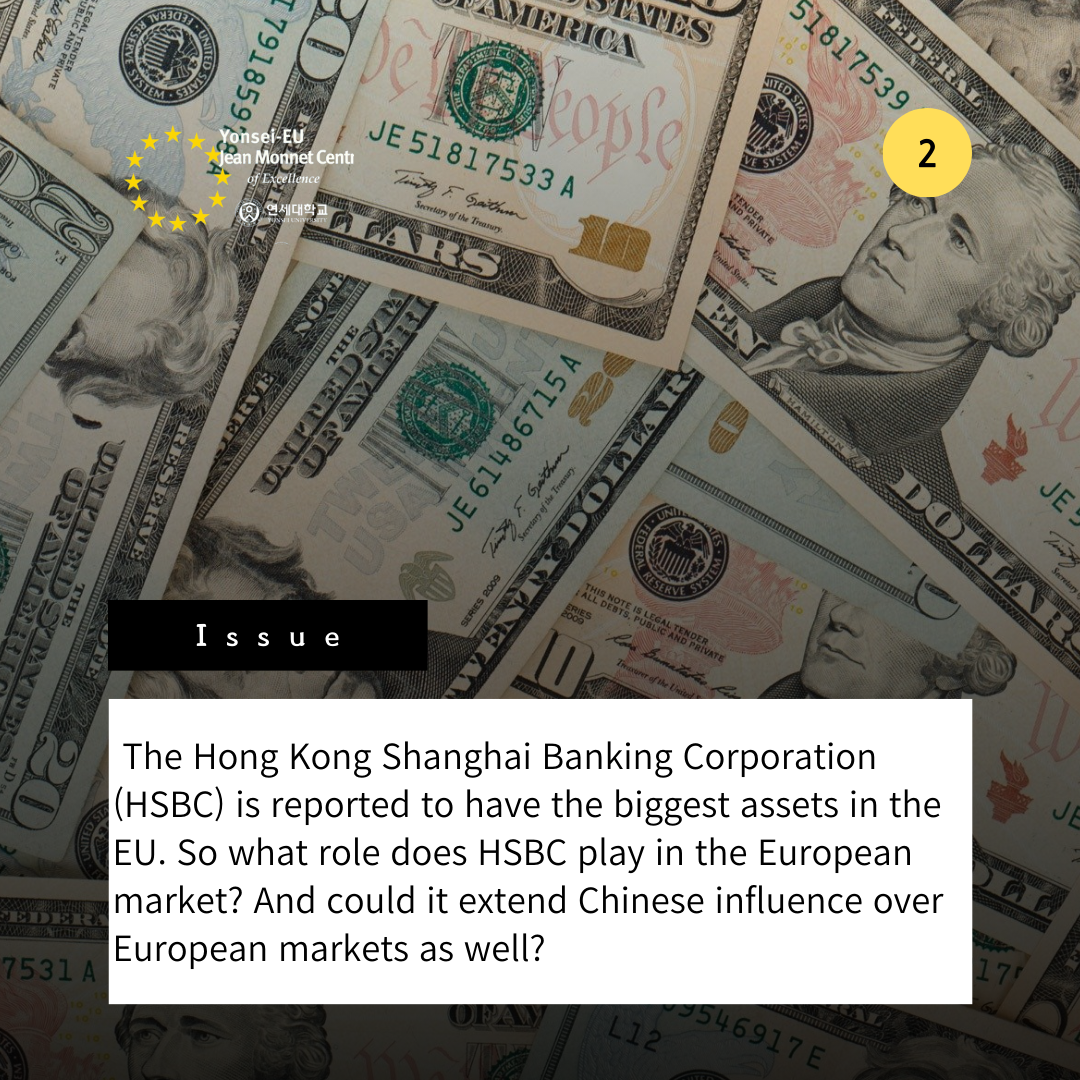
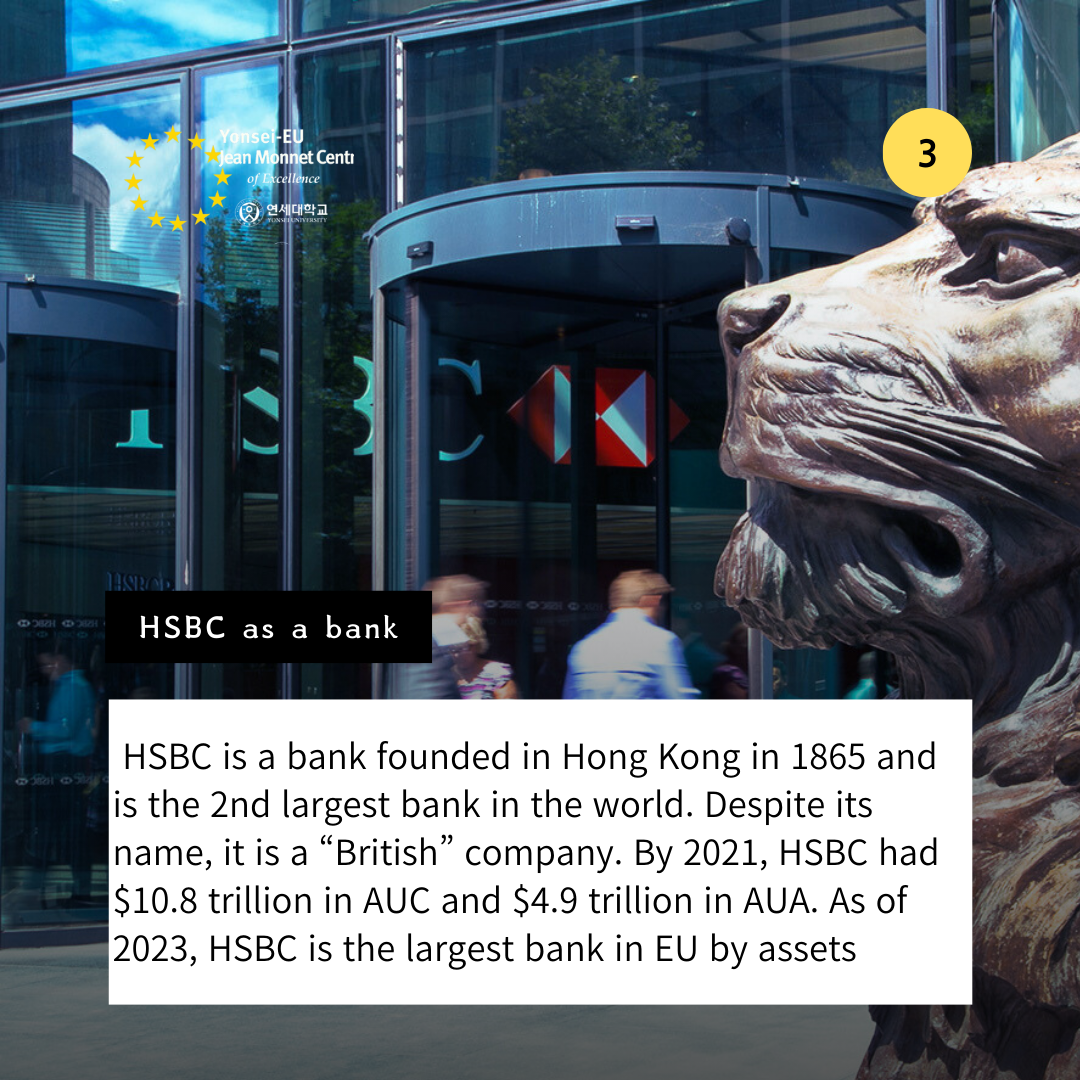
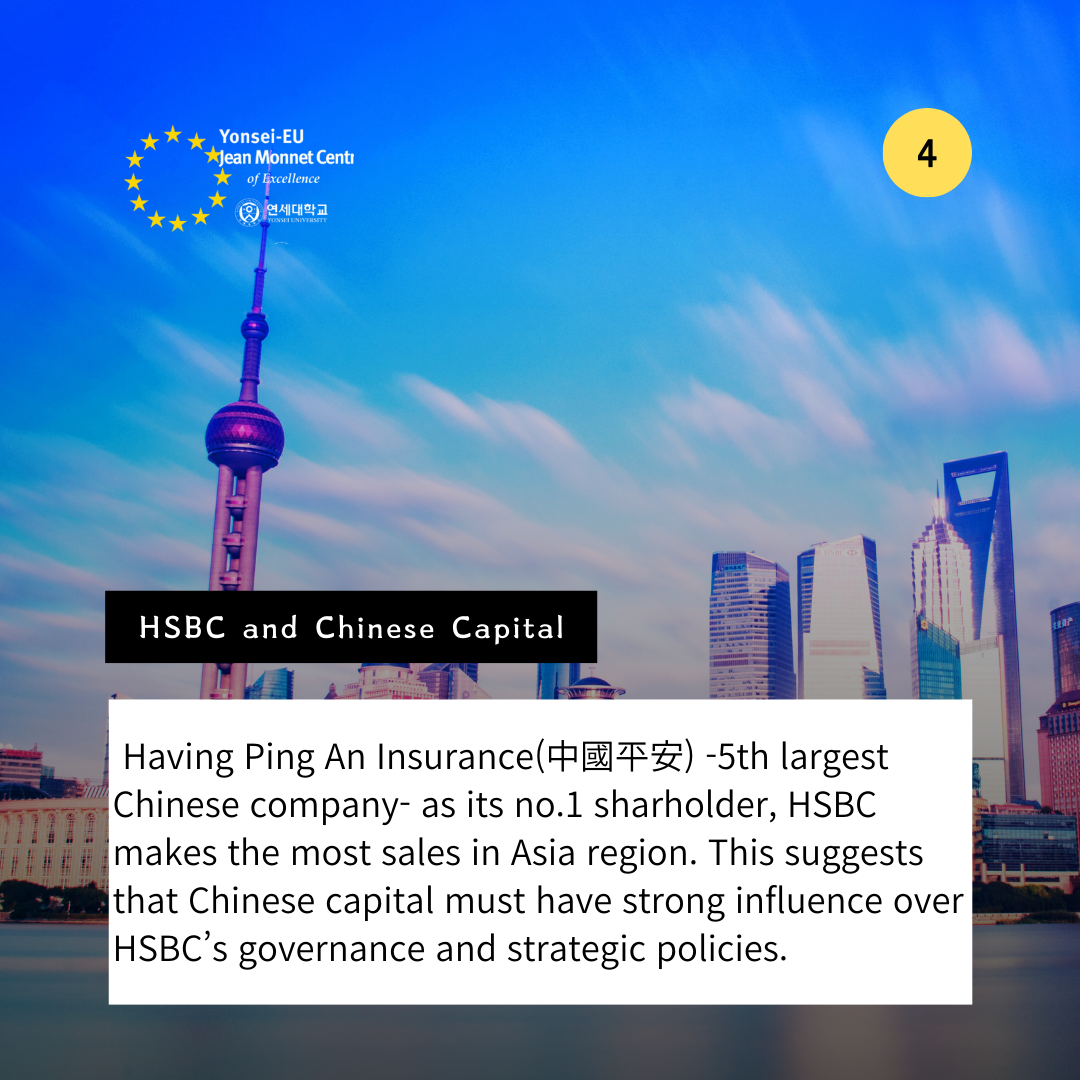
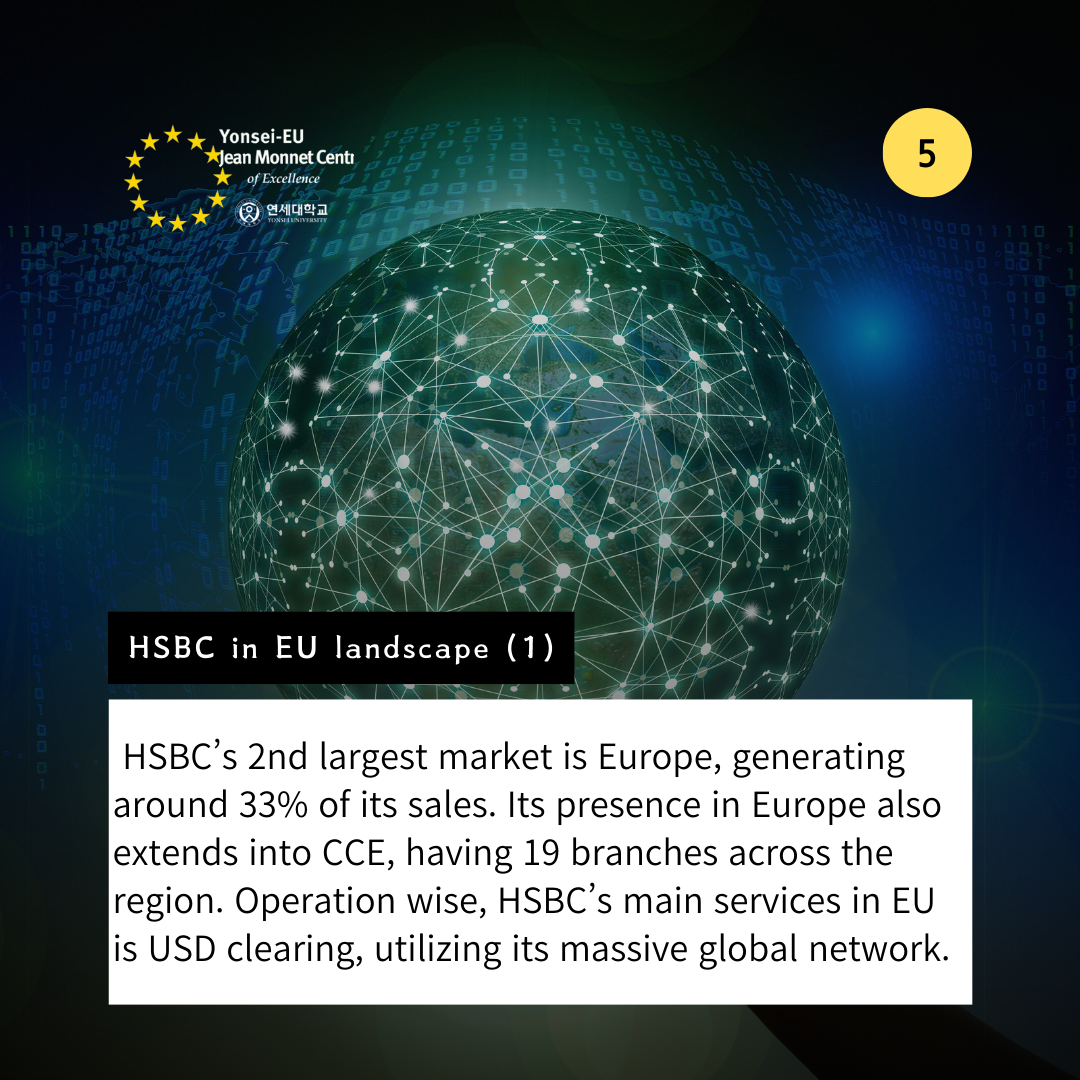
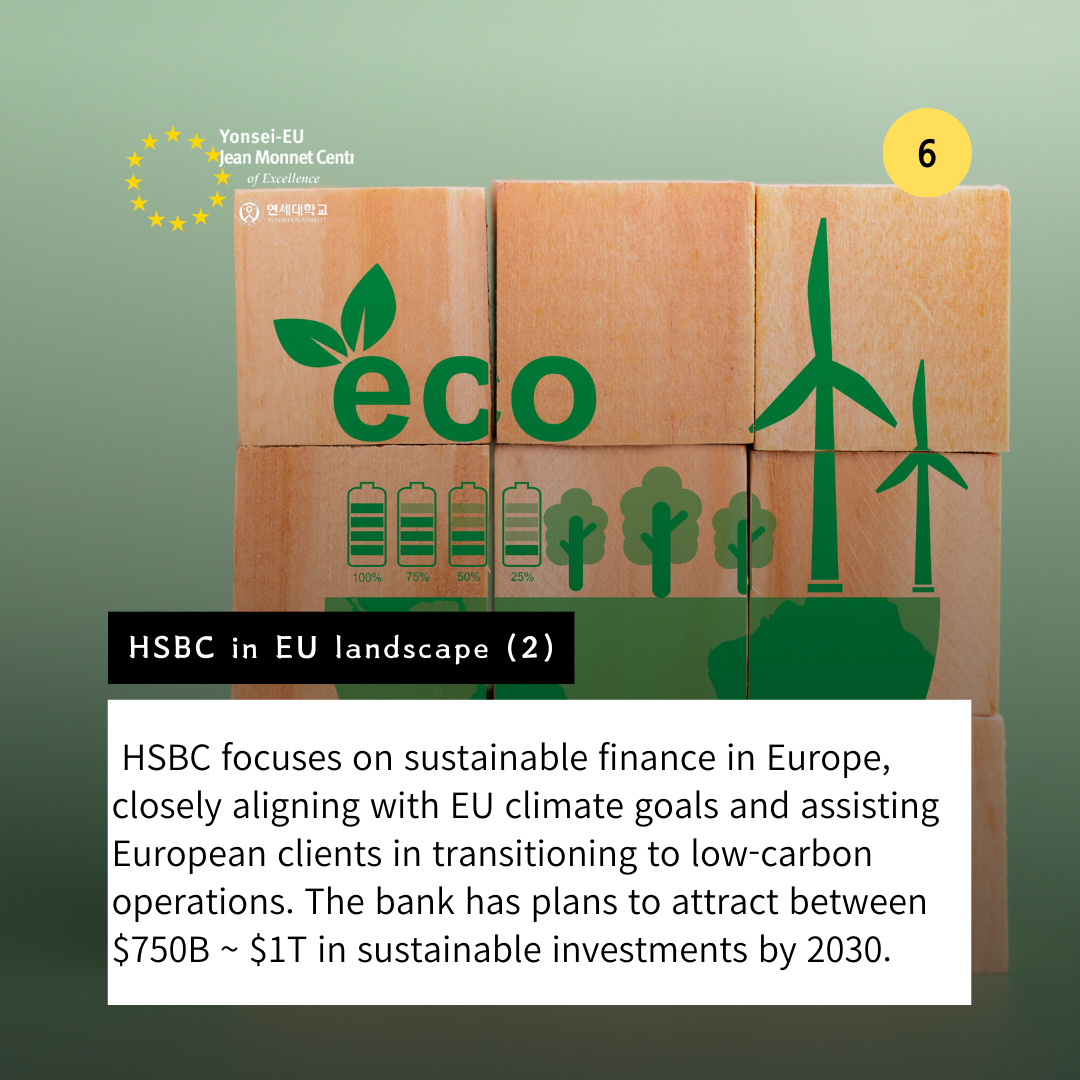
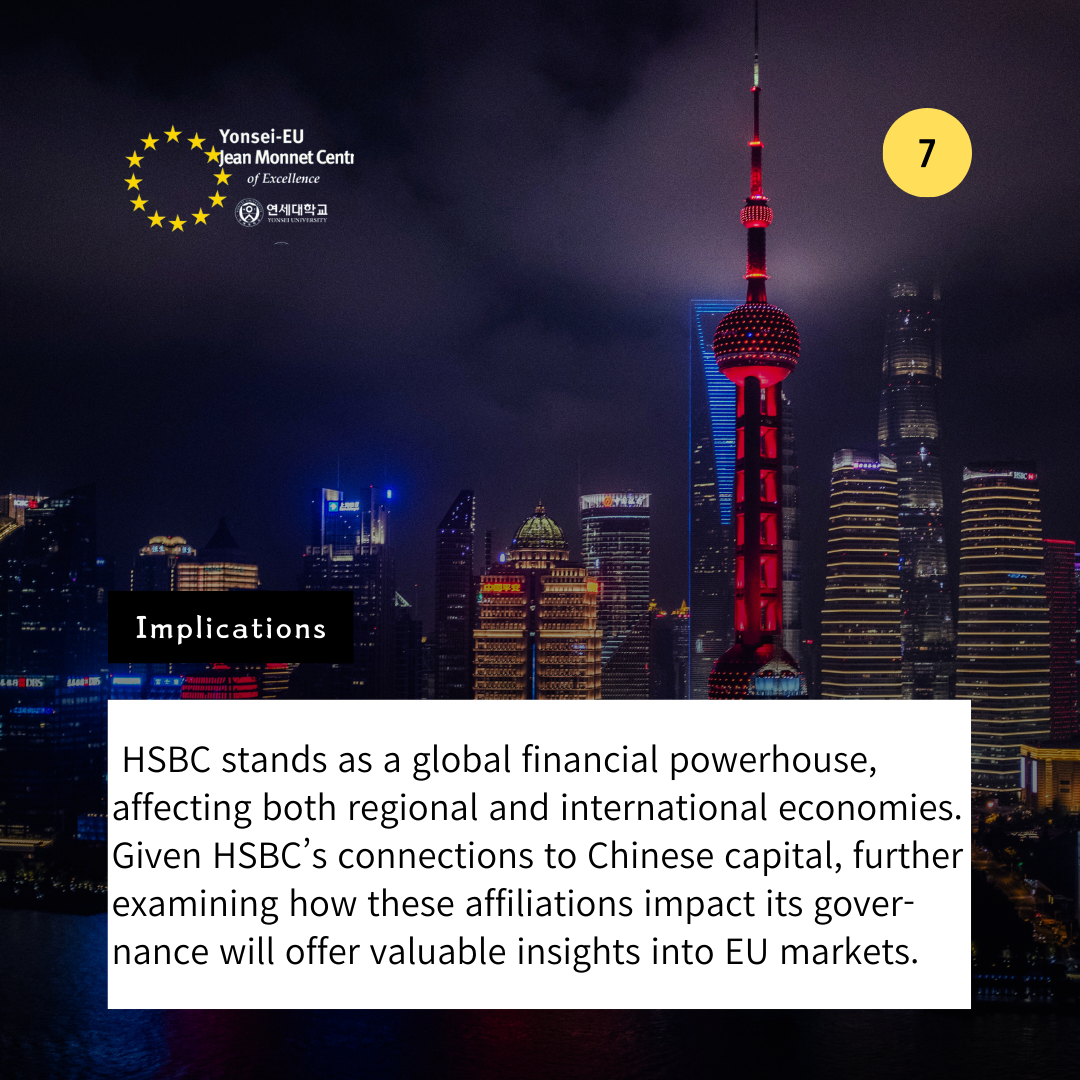
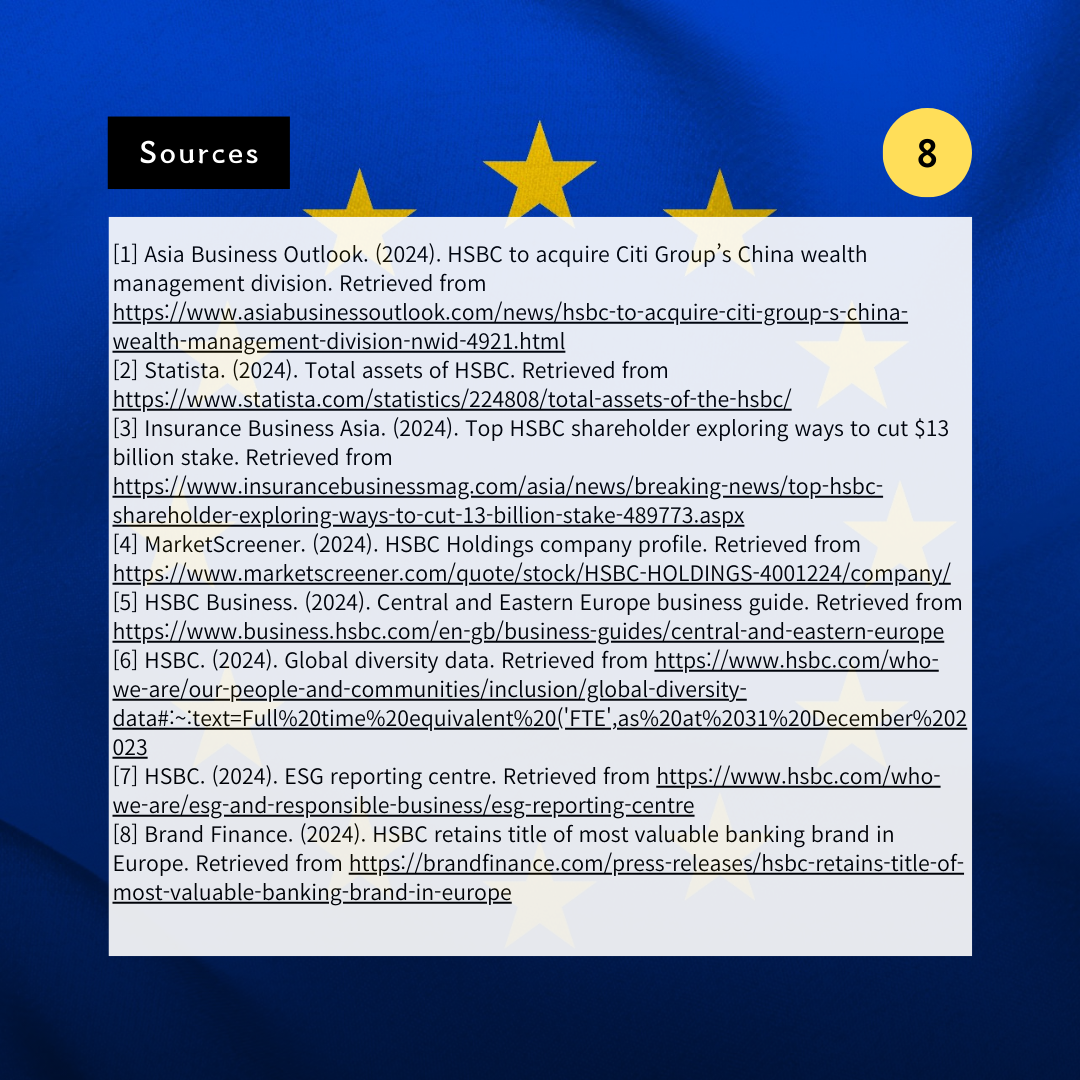

kimeunjeong387728@gmail.com
[1] Asia Business Outlook. (2024). HSBC to acquire Citi Group’s China wealth management division. Retrieved from https://www.asiabusinessoutlook.com/news/hsbc-to-acquire-citi-group-s-china-wealth-management-division-nwid-4921.html
[2] Statista. (2024). Total assets of HSBC. Retrieved from https://www.statista.com/statistics/224808/total-assets-of-the-hsbc/
[3] Insurance Business Asia. (2024). Top HSBC shareholder exploring ways to cut $13 billion stake. Retrieved from https://www.insurancebusinessmag.com/asia/news/breaking-news/top-hsbc-shareholder-exploring-ways-to-cut-13-billion-stake-489773.aspx
[4] MarketScreener. (2024). HSBC Holdings company profile. Retrieved from https://www.marketscreener.com/quote/stock/HSBC-HOLDINGS-4001224/company/
[5] HSBC Business. (2024). Central and Eastern Europe business guide. Retrieved from https://www.business.hsbc.com/en-gb/business-guides/central-and-eastern-europe
[6] HSBC. (2024). Global diversity data. Retrieved from https://www.hsbc.com/who-we-are/our-people-and-communities/inclusion/global-diversity-data#:~:text=Full%20time%20equivalent%20('FTE',as%20at%2031%20December%202023
[7] HSBC. (2024). ESG reporting centre. Retrieved from https://www.hsbc.com/who-we-are/esg-and-responsible-business/esg-reporting-centre
[8] Brand Finance. (2024). HSBC retains title of most valuable banking brand in Europe. Retrieved from https://brandfinance.com/press-releases/hsbc-retains-title-of-most-valuable-banking-brand-in-europe
